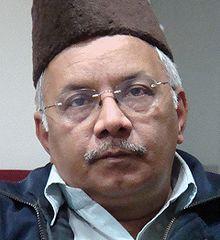Edmund Spenser Quotes - Page 4

So passeth, in the passing of a day, Of mortall life the leafe, the bud, the flowre
'The Faerie Queen' (1596) bk. 2, canto 12, st. 75
Edmund Spenser (1849). “The Works of Edmund Spenser: With Observations of His Life and Writings”, p.193
Edmund Spenser (1859). “Poetical Works”, p.218
Edmund Spenser (1822). “The poems of Edmund Spenser”, p.10
Edmund Spenser, John Payne Collier, Norris Deck (1866). “The poetical works of Edmund Spenser ...”, p.280
Edmund Spenser, John Aikin (1810). “Hymns. Visions. Elegiac poems”, p.14
1596 The Faerie Queen, bk.5, proem, stanza 4.
To be wise and eke to love, Is granted scarce to gods above.
'The Shepherd's Calendar' (1579) 'March. Willy's Emblem'
But Justice, though her dome she doe prolong, Yet at the last she will her owne cause right.
"The Faerie Queene, Book Five".
'The Faerie Queen' (1596) bk. 3, canto 10, st. 60
Robert Anderson, Geoffrey Chaucer, Henry Howard Earl of Surrey, Sir Thomas Wyatt, Thomas Sackville Earl of Dorset (1795). “The Works of the British Poets. With Prefaces”, p.109
Edmund Spenser, George Gilfillan (1859). “The poetical works of Edmund Spenser: With memoir and critical dissertations”, p.46
Like as the culver on the bared bough Sits mourning for the absence of her mate
Edmund Spenser, Joseph von Hammer-Purgstall (1814). “Spenser's Sonnets”, p.176
Edmund Spenser (1758). “The Fairy Queen”, p.170
The Shepherd's Calendar "July" l. 99 (1579)
For all that faire is, is by nature good;That is a signe to know the gentle blood.
Edmund Spenser (2013). “Delphi Complete Works of Edmund Spenser (Illustrated)”, p.1628, Delphi Classics
Edmund Spenser (1866). “The Poetical Works of Edmund Spenser: With a Memoir”, p.12
The merry cuckow, messenger of Spring, His trumpet shrill hath thrice already sounded.
Edmund Spenser, Joseph von Hammer-Purgstall (1814). “Spenser's Sonnets”, p.38
Edmund Spenser (2008). “The Faerie Queene: Complete in Five Volumes: Book One; Book Two; Books Three and Four; Book Five; Book Six and the Mutabilitie Cantos”, p.155, Hackett Publishing
And thus of all my harvest-hope I have Nought reaped but a weedye crop of care.
Edmund Spenser (2013). “The Shepheardes Calender”, p.75, Cambridge University Press






